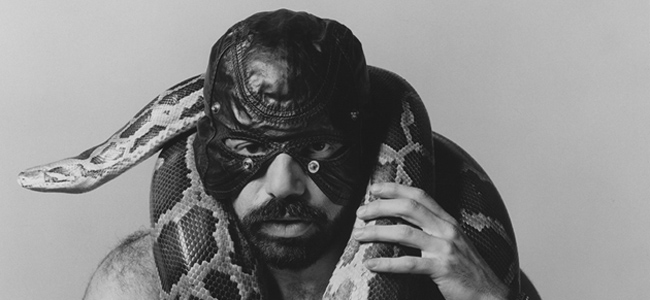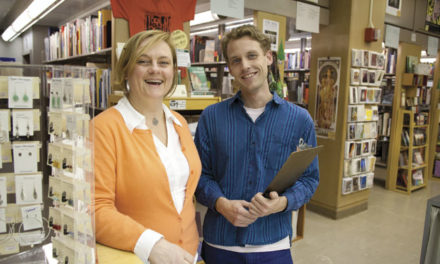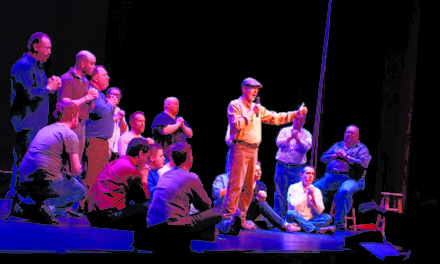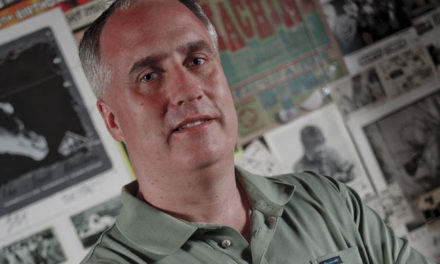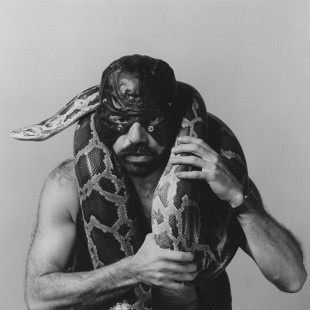
BY CAIRRIL MILLS
The work of Robert Mapplethorpe “holds a significant place in the history of artistic struggle to depict the world as it is with honesty and truth,” the curators of Britain’s renowned Tate Gallery wrote of the late controversial American photographer (1946–89).
Thirty prints, depicting some of the artist’s most graphic works, are being exhibited for the first time October 10 through November 22 at the Grunwald Gallery of Art in the Indiana University Henry Radford Hope School of Fine Arts.
The show, entitled “Robert Mapplethorpe: Photographs from The Kinsey Institute Collection,” includes photos of men embracing, male nudes, and more “difficult” pieces capturing the S&M scene of pre-AIDS New York City, according to Betsy Stirratt, director of the Grunwald. The exhibit also includes materials describing successful attempts to censor Mapplethorpe’s work.
Thirty prints were donated to The Kinsey Institute in 2011 by The Robert Mapplethorpe Foundation, which identifies institutions around the country that would be fitting repositories of the late artist’s work. At the time of the donation, foundation president Michael Stout said The Kinsey Institute was chosen to receive these prints because of its scholarly mission and IU’s “storied record of academic freedom.”
Stirratt sees value in showing the “difficult” pieces. “It reflects a time period [the 1970s and ’80s] when artists were creating work before people were more comfortable creating art exploring sexual differences and gay sexuality. I think the value lies in people seeing what was being created by an internationally known photographer who was working at a time when freedom of expression was being questioned.”
Photographic historian Andrew Moisey will put the prints in historical context with his talk “Robert Mapplethorpe: Pleasure and Pain” on October 24 at noon at the Grunwald.
The gallery’s hours are noon to 4 p.m. Tuesday through Saturday. All events are free and open to the public, although the gallery emphasizes that this exhibition is not appropriate for children. For more information, visit the Grunwald website. Contact Kinsey Institute curator Catherine Johnson-Roehr at catjohns@indiana.edu to learn more about the collection.


